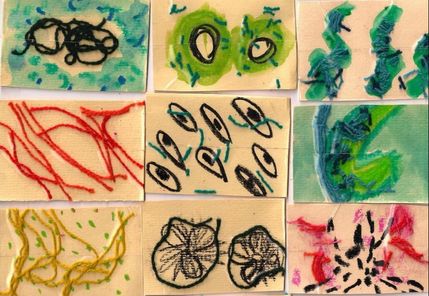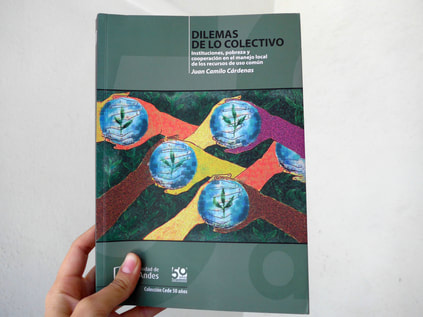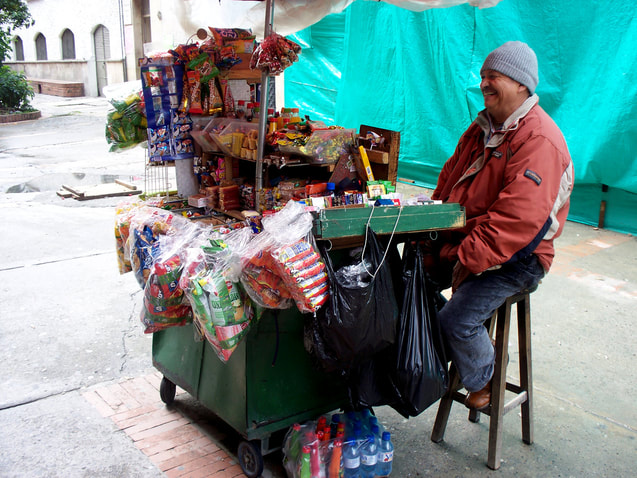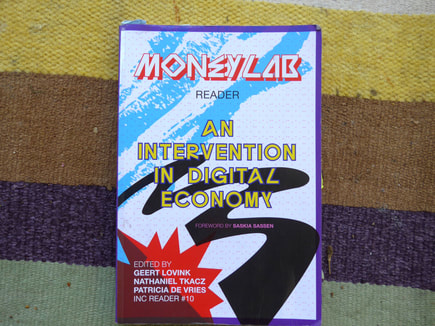Halloween Transmissions: Interaction Design & Machine Listening from the Diary of Anaïs Nin7/7/2020
0 Comments
LOS JÓVENES LATINOS INDOCUMENTADOS EN ESTADOS UNIDOS |
| |
|
In September 2017 I participated in an expert meeting for mapping the research on Gender and ICTs (Information and Communication Technologies) in Malaysia, organized by the Women's Rights Program at the Association for Progressive Communications (APC). This event brought together researchers, academics and activists from a variety of backgrounds. The conversations span around 4 research areas: Access, Economy and Labour, Embodiment and Social Movements and Activisms. Here I compile the general points that serve as a framework for those who want to understand the topic of Gender and ICTs and the discussions that surround it in the fields of research, academia and activism.
The full report can be downloaded from this link. Each of these topics is explained in depth in the document.
The image above is part of a syllabus of a Design course I delivered at Srishti Institute of Art, Design and Technology. In this post I discuss topics that hopefully inspire creative practitioners to take on these issues within their creative endeavors.
Digital literacy - exploring meaningful uses of technology with adolescent girls in rural mysore
3/10/2017
Bacteria are microscopic organisms that express incredible cooperative behaviors. They communicate with each other sending chemical signals, organizing themselves and acting together, which sometimes translate on expressing a disease for humans beings, and other manifestations as creating light. Cooperative behaviors of bacteria are particularly fascinating because they represent one of the major challenges for evolutionary biologists: How to explain altruistic behaviors, where actions that increase another individual's fitness come at a cost to your own, as natural selection appears to favor selfish, uncooperative individuals.
understanding collective action theories through massive mobilizations in the public space
11/5/2016
Original name in Spanish: Dilemas de lo colectivo: Instituciones, pobreza y cooperación en el manejo local de los recursos de uso común. Juan Camilo Cardenas (2009).
"Collective or communitary spaces confront us to the dilemma of managing them in a collective manner, or abandoning them to rules of the game that are incomplete and considerable individual incentives that will take them to be territories of noone. [...] The central topic of this book is cooperation, and its principal postulate of collective action."
Welcome to my final degree project as an undergraduate Design Student at The University of Los Andes in Bogotá, Colombia. When I began this project, I was very interested in exploring how street vendors (informal workers that sell snacks and other goods in the streets) are able to save money. I could come up with different approaches and tools from the design perspective, but I reached a point in which I needed to speak to people in the field of economics to understand the context deeply. This is therefore a collaboration between myself, my adviser in Design (David de los Reyes) and my adviser in Economics (Juan Camilo Cardenas).
The design research project included 19 street vendors over 5 months in Bogotá. The idea was to explore the relationship of the vendors with money, savings and credit. The research was a very revealing experience, that showed to us how the understanding of money for the vendors, as well as their aspirations for the future are collective constructs rather than individual perceptions only. This study included individual interviews, as well as economic experiments to explore dynamics of cooperation amongst the vendors. I am proud to say that after this experience, both departments in the University started interdisciplinary collaborations between Design and Economics.
BOOK REVIEW: "AN INTERVENTION ON DIGITAL ECONOMY" / measuring the value of the knowledge commons
12/1/2015
The Institute for Network Cultures released this book on Digital economy, edited by Geert Lovink, Nathaniel Tkacz and Patricia de Vries. This compilation of essays from artists and practitioners introduces conceptual frameworks that expand the notion of money as a medium of exchange and manipulation, towards new understandings of the economy given the posibilities for trading on the internet.



